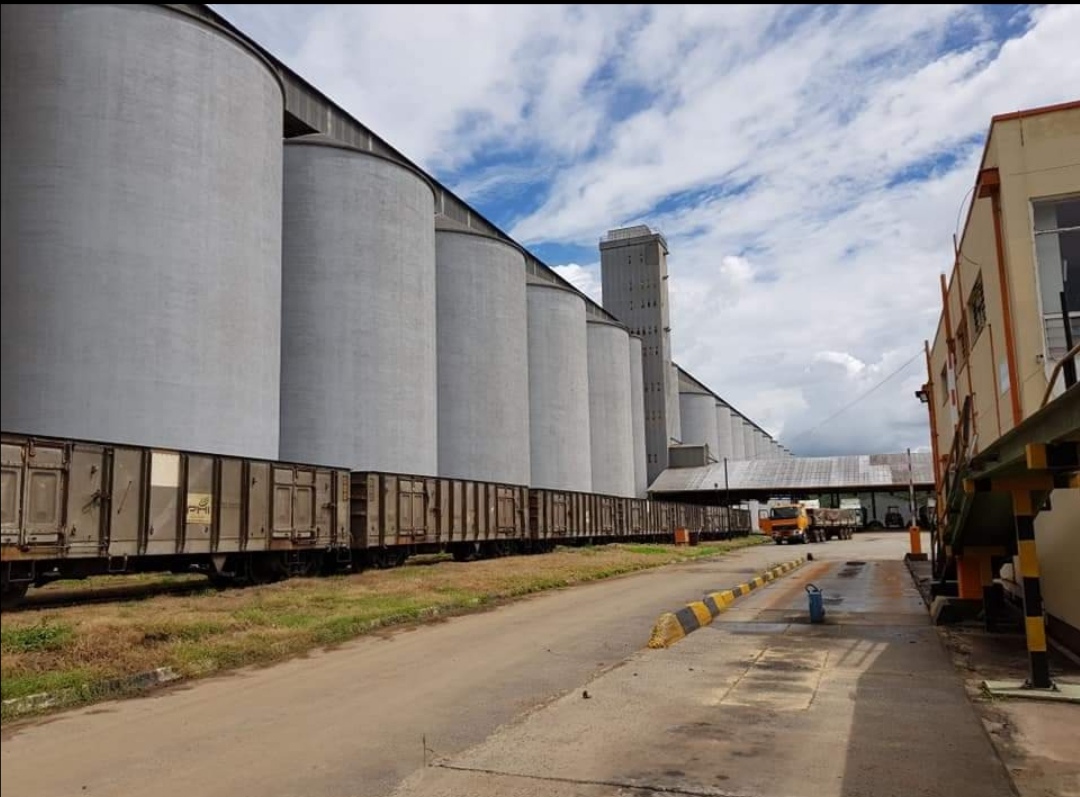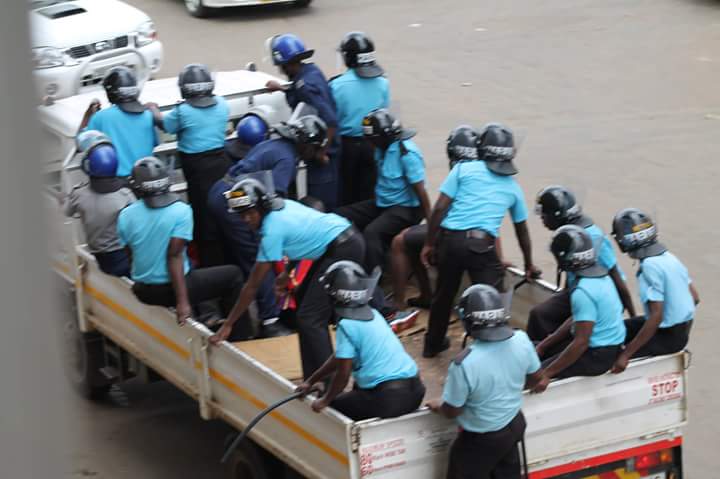War against drug and substance intensifies
Share

MARONDERA- The country’s law enforcers arrested 843 people in Marondera,
Wedza, Chikomba and Seke districts of Mashonaland East as at last month as
efforts to deal with drug and substance abuse continues.
Marondera district topped the statistics with 701 arrests in the province’s capital.
Chrystal meth (mutoriro) and dagga (mbanje) are the drugs mostly used by abusers.
“As the Zimbabwe Republic Police (ZRP), we are carrying our campaigns on drug
and substance abuse and the law is always catching up on those found on the wrong
side. Drug abuse is now a phenomenon and it has been most rampant in Marondera
district where we made more than 700 arrests of the 843 recorded in the previous
month.
“As we carry out our operations, we work with Government departments and private
organisations. We identify hotspot and make raids at places where we would have
been tipped of. Along all the highways in the province, we are making random stops
and searches as part of our efforts in fighting the distribution and abuse of drugs,”
provincial police spokesperson Inspector Simon Chazovachiyi said.
A National Drug and Substance Abuse Committee stakeholder meeting was last
week held in Marondera and various stakeholders from Government Ministries
pledged to work together to deal with the scourge.
The committee, chaired by Defence Minister Oppah Muchinguri at national level, was
set up by President Mnangagwa and the various stakeholders who are in it also
include the Zimbabwe Republic Police (ZRP), the Medicines Control Authority of
Zimbabwe (MCAZ) and the Zimbabwe Revenue Authority (ZIMRA), among others.
The Minister of Youth Empowerment and Vocational Training Centres, Tino
Machakaire said the Government is working flat out to plug all the gaps to eradicate
drug and substance abuse.
He said: “As Government, we are leaving no stone unturned as we are now
equipping our law enforcement agencies with enough tools to fight drug abuse. In my
capacity as the Youth Minister, I would like to applaud all Government departments
and private organisations for their efforts in the campaign against drugs.
“The Second Republic is concerned by the continued abuse of drugs by our youths
and as a listening President (Emmerson) Mnangagwa, he created the Ministry which
I am now leading. An all-stakeholder participation is needed if we are to win this war.
“I want to applaud Mashonaland East for the consolidated report on drug and
substance abuse in the province that has been submitted to me for onward
submission to President Mnangagwa.
“Drug and substance abuse remains a big challenge to many African countries and
in support of President Mnangagwa’s vision, we must always have programmes that
keep the young ones busy to keep them away from peddling or taking drugs.”
The Minister of State for Mashonaland East Provincial Affairs and Devolution Dr
Aplonia Munzverengwi reiterated the same Government’s commitment to deal with
the drug and substance abuse scourge.
“Here in Mashonaland East, we have been doing our best to involve all stakeholders
in the war against drugs. As we go all-out in the fight, we realised that we need to
close all the existing and potential loopholes that are being, or may be, used by drug
peddlers who are a major source of this problem.
“That includes the close monitoring of our borders with the neighbouring countries,
busting safe havens of distribution of drugs and arresting those who buy and abuse
the drugs. It has come to our attention that most of our idle youths are resorting to
drug abuse and they must be trained at vocational centres so that they are kept
busy. We are running a high risk of losing a whole generation to this scourge and
every effort must be made to make sure that we avoid that,” she said.
Local traditional leader, Chief Svosve said an increase in public education and
awareness campaigns about substance abuse, especially directed at adolescents
and young people, will help to raise awareness and curb the risks associated with
the social ill in communities.
He said: “As traditional leaders, we are doing our best to ensure our communities are
free from drug abuse. We want our cultural values and norms to be preserved at all
costs and all that can go down the drain if our youths who are the future of this
country are always intoxicated.”
Last week, Cabinet received the consolidated Report on Drug and Substance Abuse
as presented by the Chairperson of the Inter-Ministerial Committee and Minister of
Defence, Honourable Oppah Muchinguri-Kashiri.
She said Government is upping its game in the war against illegal inflow of illicit
drugs, substances as well as alcohol throughout the country.
It was noted that Primary, Higher and Tertiary Education Institutions carried out drug
and substance abuse awareness campaigns to students. Weekly Awareness
campaigns continue to be a priority, and the collective campaigns in the primary and
secondary education levels has reached 16 825 learners (4 155 males and 12 670
female). Community outreaches are being carried out through Information, Education
and Communication materials.
The nation through the Medicines Control Authority of Zimbabwe (MCAZ) seized an
unregistered consignment of drugs and the case was referred to the Zimbabwe
Republic Police CID Department and investigations were underway.
After it emerged that 198 (184 males and 14 female) patients received drug
rehabilitation services inclusive of treatment, medical detoxification and rehabilitation
services to all referred and walk-in clients, Cabinet resolved that Provincial Taskforce
Teams should strengthen support to all district programme activities and ensure that
Chiefs, Church leaders and all local political leaders are actively involved.
Cabinet further resolved that the “drug and substance Abuse Programme should be
aligned to the Civil Protection Unit which is comprehensive, the Resource
Mobilisation Committee be chaired by the Ministry of Local Government and Public
Works and utilise resource mobilisation structures in Civil Protection, the Command
Centre be activated in order to fully support the program in its day to day operation
and that Parliamentarians be integrated in Drug and Substance Programming at
Sub-National structures.”
A recent research by the United Nations Children’s Fund (UNICEF), in collaboration
with the Government, Muthengo Development Studies (MDS), Zimbabwe Civil
Liberties and Drug Network (ZCLDN), and Youth Advocates Zimbabwe (YAZ)
showed that 60 percent of school dropouts across Zimbabwe are as a result of drug
and substance use,
According to the research, most common drugs abused by students were cannabis
(67%), cough syrup (47%), crystal meth (36%), illegal alcohol (31%),
pharmaceuticals (13%), crack (3%), cocaine powder (3%) and heroin (2%).
The research found that drug abuse had led to students dropping out of school, thus
leading to a cycle of poverty and crime.
“The study revealed disturbing patterns directly attributable to alcohol, drug and
substance (ADS) abuse: 70% of gang violence is among school children; 15% of
Intimate Partner Violence (IPV) and Gender Based Violence (GBV) cases involve
adolescents and young people; and an increase in school dropouts with 60% having
dropped out of school after being expelled for ADS abuse,” the report gleaned by
Chaminuka News pointed out.
Adolescents and young people from wealthy families, as per the report’s finding,
consumed more expensive substances like cocaine, crack, heroin and legal alcohol,
while those from disadvantaged families consumed cheaper substances.
Various reasons for the abuse were identified and they include, among them
idleness, peer pressure, poverty and loss of parents.








